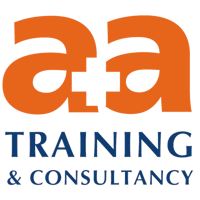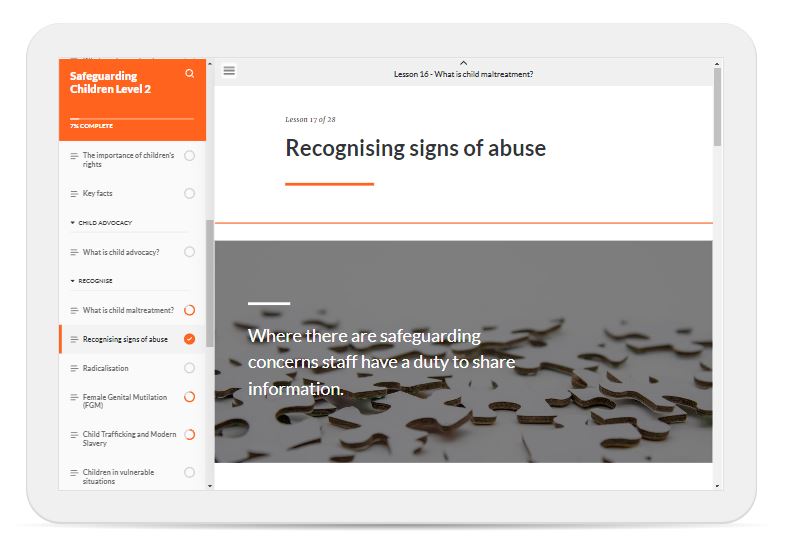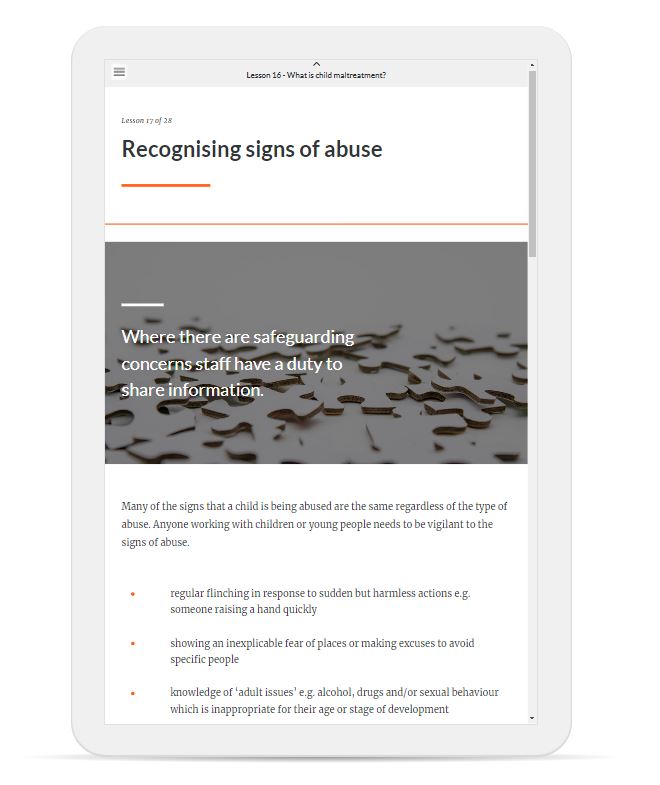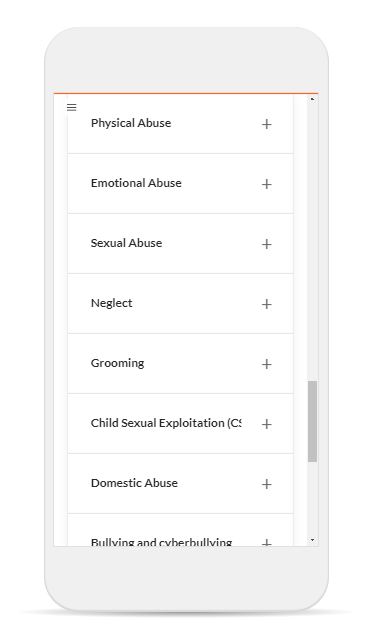Safeguarding Children Level 2
£6.66 exc VAT
Dependent upon roles, healthcare workers can be in an important position in helping to recognise child maltreatment. Healthcare staff need to be alert to signs and symptoms of maltreatment or neglect. They will have a vital role in ensuring effective recording, communication and sharing of information, to help improve identification and ensure appropriate support is put in place for children and young people in need or at risk of harm.
At the end of this course, learners are required to complete an online assessment. On successful completion of the assessment (80% pass mark), learners may download a Safeguarding Children Level 2 certificate from their profile page. Our certificate can be used to provide evidence for compliance and audit purposes.






lcarter –
informative and clear
Stephania Baker –
informative.